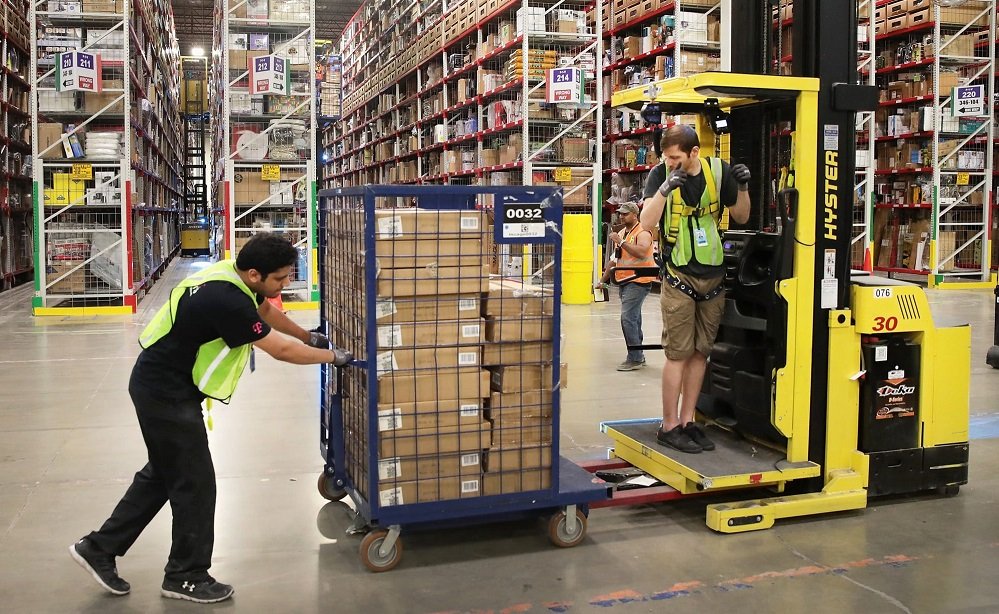Benjamin Franklin supposedly said that “distrust and caution are the parents of security”. This quirky old expression is an apt way of describing the introduction of the EU’s Digital Services Act (DSA) and its sister regulation, the Digital Markets Act (DMA), as a combined package of legislative proposals.
Due to be unveiled next Wednesday, 9 December, the DSA/DMA package is Brussels’ attempt to set global standards for the digital economy and tackle the entrenched advantages enjoyed by Big Tech.
In a nutshell
Whereas GDPR was primarily a “housekeeping” initiative focused on data protection, the DSA/DMA package is the first big overhaul of the EU’s approach to regulating the internet in two decades. It will fundamentally transform how things work online.
The DSA, the main component of the new legislative package, is aimed primarily at larger online platforms, like Facebook and Amazon, but its broad scope means SMEs, digital services providers, “rights-holders” (i.e. anyone who uploads original content online), and other offline platforms should be aware of the its potential impact.
The regulation will compel Big Tech to share their huge treasure trove of customer data with smaller rivals. According to a recent draft, the likes of Amazon, Google, and Facebook “shall not use data collected on the platform for their own commercial activities unless they make it accessible to business users active in the same commercial activities”.
From a commercial perspective, this means that comparably smaller e-commerce businesses, such as Sainsbury’s (owners of Argos) and The Very Group (owners of Littlewoods), will now be able to gain insight into the complex algorithms that give Big Tech their competitive edge, helping to create a more level playing field in the marketplace. On an everyday level, it will also show how and why Big Tech can advertise to us with such unnerving precision—in other words, how does Facebook know I need a new toaster?
The DMA should ensure that Big Tech behaves fairly and can be challenged by new entrants and existing competitors, so that consumers have the widest choice, and the Single Market remains competitive and open to innovations.
If the DMA is designed to stimulate greater market competition, the DSA is focused on greater platform accountability, content moderation, enhanced transparency, and stronger enforcement measures.

What does the DSA/DMA package mean for Big Tech companies?
The Cambridge Analytica Scandal still looms large over Big Tech, and the DSA and DMA are intended to expand and harmonise digital service providers’ responsibilities and improve the supervision of digital services across the EU. The Commission aims to do this by strengthening online platform providers’ obligations to remove illegal content, tackle disinformation, and to clarify the providers’ liability for third-party content they host.
Big Tech companies will be shocked by the scale of the EU’s ambitions to curb their powers; early reports suggest that there are roughly 30 paragraphs of prohibitions or obligations contained within the regulation.
Some industry and political commentators speculate that tech companies may also be banned from preferential treatment of their own services on their sites or platforms, to the benefit of rivals, and may not be allowed to pre-install their own applications on hardware devices, such as laptops or phones, or force other companies to exclusively pre-install their software.
In other words, the next time you purchase a new iPhone or Windows laptop, the pre-loaded selection of Apple apps or Microsoft software may look a little sparse.
What does the DSA mean for other businesses and consumers?
Increased monitoring and takedown responsibilities and more liability for third-party content are generally good news for consumers, who will be better protected from illegal content and activities and benefit from more oversight and accountability. This is also positive news for rights-holders, as it will help to prevent some of the damage caused by copyright infringement.
However, the picture is greyer for platforms, who would bear the burden of actually applying the additional obligations. Currently, platforms that merely host content only have an obligation to remove illegal content once they become aware of it.
However, the DSA could require these platforms, irrespective of their size, to actively monitor for illegal content and activity and act immediately. This would put a cost and time burden on platforms, not least because of the potential liabilities they could face for failure to find and remove illegal content.
Ultimately, a balance must be found. While consumers and rights-holders need to be better protected from illegal content and activities, it is unfair, and commercially untenable, to expect platforms to pick up all the slack.
In the long run, onerous responsibilities for platform providers could negatively impact consumers; a large proportion of platforms’ funds, which may otherwise be used to improve consumer services and choice, will instead need to be ploughed into policing third parties’ content and activities.

What happens now?
European regulators are keen to reshape the rules of the digital economy after years of accusations that online platforms are “too big to care”. Antitrust cases often last for years without palatable concessions to improve competition in the EU.
Through the DSA/DMA package, the Commission seeks a well-functioning Digital Single Market, the restoration of trust in the digital economy, and to ensure the rules are better enforced in a market-friendly manner. Following announcement next week, member states and the European Parliament will then sign off on it, which may take several months.
Big Tech is already under intense pressure on both sides of the Atlantic. In the United States, Justice Department and state prosecutors investigating Google for alleged antitrust violations are considering whether to force the company to sell its dominant Chrome browser and parts of its lucrative advertising business. In Europe, Apple and Amazon are currently under investigation by Brussels’ competition authorities.
Still, the Commission is not likely to have it all its own way. Big Tech possesses a powerful lobby group; Google has been the first out to try to convince MEPs to modernise existing rules rather than “turning to consideration of a new and distinct regulatory framework”.
When analysing the potential impact of the DSA/DMA package, one might understandably think about Facebook, Google, Amazon, and the rest of Big Tech, but the implications of this new legislation for digital businesses, both big and small, are likely to be much more far-reaching and cumbersome.
Think back to GDPR. Its rollout was certainly well publicised, but what was actually required of organisations at the time was less clear. Poor communication from the EU resulted in slow and arduous implementation.
How the EU Commission plans to communicate the DSA/DMA package to businesses remains uncertain, but transparency on its implications, and the obligations required of those it affects, will be crucial. Clear, step-by-step guides for organisations of all sizes and interests are essential to avoid the mistakes of the past and lay the groundwork for real change.

About the author
Karl specialises in public and corporate affairs for clients operating in highly regulated environments. Prior to joining 360, Karl worked in public affairs and public relations with other communication consultancies. He has also worked for high-profile politicians in both the European Parliament and the Houses of the Oireachtas.
